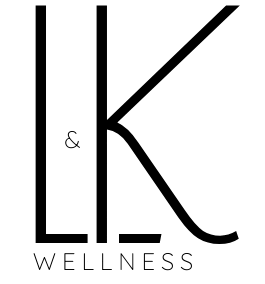The Power of a Digital Detox: How to Reduce Screen Time
The constant pressure to stay “plugged in” can lead to burnout, anxiety, and a sense of overwhelm. This is where the power of a digital detox comes into play. Taking time to unplug from screens, even for a short period, can help you regain mental clarity, boost creativity, and foster a deeper connection with yourself and the world around you. In this post, we’ll explore the benefits of a digital detox and provide actionable tips to help you unplug and recharge, so you can lead a more balanced, mindful life.
The Benefits of a Digital Detox
Taking a break from technology can do wonders for your mood, clear your mind, and help you feel more like yourself again. Whether it’s stepping away from endless notifications or putting your phone down for a while, a digital detox can have a powerful impact on how you think, feel, and function every day. Here’s why unplugging might be just what you need to recharge and reconnect with what really matters.

Improved Focus and Clarity: Minimizing the distractions and constant interruptions that come from being tethered to screens allows your mind to operate more efficiently. Without the barrage of notifications, social media updates, and endless content, you can concentrate more deeply on tasks, think more creatively, and make better decisions. This break from digital noise helps your brain reset, leading to increased productivity and a clearer, more focused mindset.
Enhanced Mood: Stepping away from social media and your phone can greatly enhance your mood by reducing the constant stream of information and comparisons that often lead to stress, anxiety, and feelings of inadequacy. Without the pressure of notifications and online interactions, you can focus more on real-life experiences, fostering a more positive and balanced emotional state throughout the day.
Better Sleep: Exposure to screens, especially close to bedtime, can interfere with your circadian rhythms and reduce sleep quality. The blue light emitted from screens can suppress the production of melatonin, the hormone responsible for making you feel sleepy. By giving your mind time to unwind without screen exposure, you can fall asleep more easily, enjoy deeper sleep, and wake up feeling more refreshed.
Enhanced Relationships: Detaching from your phone allows you to be fully present with loved ones. Instead of being distracted by screens, you can foster deeper connections through face-to-face conversations, quality time, and shared experiences.

How to Start Your Digital Detox
If the idea of a digital detox sounds appealing, but you’re not sure where to start, here are some practical tips to help you ease into a more mindful relationship with technology:
Create a Morning Routine Without Screens: Replace your morning scroll with healthier habits like reading, journaling, or stretching. Start small, perhaps with just five minutes of phone-free time, and gradually increase it.
Set Specific Boundaries: Define what your digital detox will look like. You don’t have to go “cold turkey”—start small by committing to unplugging during certain times of the day (e.g., no screens after 8 PM) or on weekends. Gradually increase the length of your detox as it feels comfortable.
Use an Actual Alarm Clock: Instead of relying on your phone’s alarm, use a traditional alarm clock to wake up. This reduces the temptation to check your phone immediately upon waking.
Practice Mindfulness: Engage in mindfulness practices like meditation or deep breathing exercises to center yourself before diving into the digital world.
The Effects of Too Much Screen Time
Mental Fatigue & Burnout: Endless notifications, emails, and social media updates can overstimulate your brain, leading to mental fatigue and burnout. Over time, this constant need to stay connected can drain your energy and make it difficult to focus on meaningful tasks.
Increased Stress & Anxiety: Constantly checking messages or scrolling through social media can contribute to stress and anxiety. The fear of missing out (FOMO), comparison to others, and absorbing negative news can make you feel overwhelmed and anxious.
Poor Sleep Quality: Blue light emitted by screens interferes with your body’s natural sleep cycle, suppressing the production of melatonin—the hormone that helps you fall asleep. This can lead to difficulty falling asleep or poor-quality rest, resulting in fatigue the next day.
Eye Strain & Headaches: Staring at screens for long periods can cause digital eye strain, resulting in headaches, dry eyes, blurred vision, and neck or shoulder pain due to poor posture.
Reduced Attention Span: The rapid consumption of information on social media or fast-paced videos can weaken your ability to focus. This “dopamine hit” from instant gratification makes it harder to pay attention to tasks that require sustained focus and patience.
Taking a step back from screens isn’t just about resting your eyes—it’s about giving your mind and body the space to recharge and reset. Whether it’s turning off your phone during meals or setting aside time for screen-free activities, a digital detox can bring you more mental clarity, reduce stress, and help you sleep better. By being mindful of how much time you spend connected to your devices, you can start feeling more balanced, focused, and in control of your own well-being. Sometimes, the best way to reconnect with yourself is by disconnecting from your screens.






